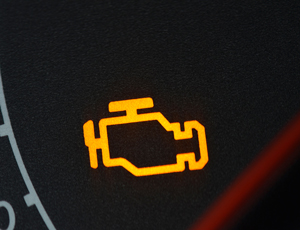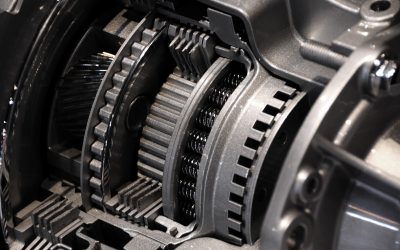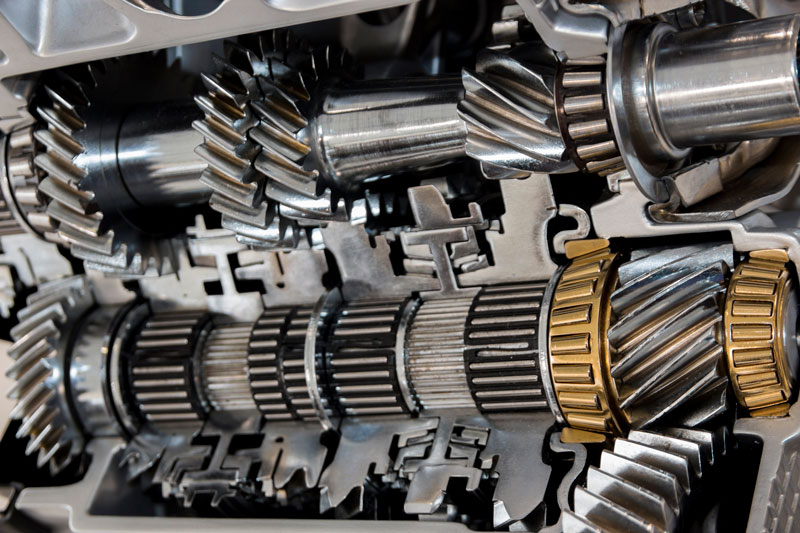A happy transmission means a happy car. You keep up with transmission maintenance services and try to be a careful driver, but you may still be worried about the condition of your car’s transmission. How can you tell you may need to schedule a transmission repair appointment with your mechanic? There are a few ways you can check in on the health of your transmission and decide whether it needs attention or if it’s still operating at a healthy level.
Related: 3 Warning Signs Your Clutch is Going Bad
Related: Basic Car Services & Mileage Intervals
Related: Is A Transmission Fluid Flush Right For You?
Refresh Your Car Here
Bring your vehicle in to AAMCO Louisville today!
Dedicated to saving you thousands and keeping your car healthy. Learn More »
Check Your Transmission Fluid
Sometimes the first sign of transmission trouble can be detected by looking at your transmission fluid. Healthy transmission fluid can be distinguished from old, contaminated fluid in a few ways. First, find your transmission dip stick, which should look similar to the one used to check your engine oil, and follow the same steps you would when checking your engine oil. If it looks black, smells burnt, or feels overly thick with debris, you need to have your transmission fluid replaced and your transmission serviced by a trusted mechanic.
Regular Transmission Fluid Services Help Prevent Major Transmission Repairs
Keeping up with regular transmission fluid replacement is essential to maintaining the health of your transmission. It’s normal for your transmission fluid to become dirty and contaminated over time but going too long in between replacing it with fresh fluid can cause extra wear and damage to the working parts of your transmission.

Pay Attention to How Your Car Drives
The transmission is responsible for managing the power that’s sent to the wheels of your car. This means if you have a problem with your transmission, you’ll notice changes in how your car drives, even before it turns into a major transmission repair. Pay attention to any changes, from less or inconsistent power to new sounds while accelerating. These can help alert you to transmission trouble before you find yourself stranded.
Differences in Gear Shifting, Acceleration or RPM Can Point to Your Transmission
Pay particular attention to how your car feels when shifting gears and accelerating or if you notice your engine revving more than usual. All of these can be signs your transmission needs attention. Because it’s such a complex system of moving parts, you want to have a transmission expert take a look so you can be sure any problems are taken care of.
Try Revving the Engine with Your Brakes Applied
Park your car and activate the parking brake, then apply your brakes firmly with your left foot and with your right foot carefully depress the accelerator slightly for a few seconds to see if the vehicle attempts to move forward against the brakes. If your engine revs up slightly in rpm and your vehicle attempts to move forward against the brakes, it’s an indication your car’s transmission is healthy enough to operate. However, if your engine revs go up easily in rpm but your vehicle doesn’t attempt to move forward, it’s a sure sign your transmission may need attention from a transmission technician.
Take Note of Strange Sounds, Hesitation, or Lack of Power
During this test, you can also pay attention to any strange sounds or differences in how your car feels. If your car revs but you notice hesitation, it feels like it has less power, or you hear strange sounds while revving, it still points to transmission trouble.

Watch Your Dashboard Warning Lights
The key with any car trouble is to pay attention when dashboard warning lights illuminate. Warning lights each correspond with different systems of your car, so if you see one come on, pull out your owner’s manual and check what it might indicate. There can also be a lot of crossover with attributing a warning light with a specific cause, so a mechanic should run diagnostics and carry out an inspection, no matter which warning light you see.
The Check Engine Light Should Never Be Ignored
While it may be tempting to act like that Check Engine light isn’t actually illuminated and carry on like normal, it’s a risky game to play. Your Check Engine light can mean a number of problems with your car, including transmission problems. Have a trusted mechanic run diagnostics to be sure any related auto repairs are taken care of.

Come to the Best Louisville Transmission Mechanics
No matter what your car needs, the transmission experts at AAMCO Louisville can help get your transmission – and the rest of your car – back in its best condition. It’s stressful when your car isn’t running the way it should. We understand, which is why we put our customer relationships first, making the auto repair process as stress-free as possible. Give us a call or schedule your appointment online today!
Common Transmission Problems That Mean Trouble
What are some common transmission problems? There's a pretty high chance that if you are a car owner, the phrase "Transmission problems" has made your heart sink. These problems can often be incredibly stressful and expensive to deal with and can often push car owners...
read more4 Reasons Your Check Engine Light Is On
Is Your Check Engine Light On? One day, you’re driving around town running errands and the check engine light illuminates on your dash. A lot of drivers find the check engine light a mystery since it doesn’t point out the actual problem or solution. Related: Free...
read more5 Warning Signs of A Failing Transmission
Bad Transmission Symptoms On a sunny afternoon morning, you prepare to head out for a road trip. Halfway there, your car starts to make a strange whining noise so you slow down. The sound goes away and you take off again when suddenly the car revs up and it kicks you...
read more



